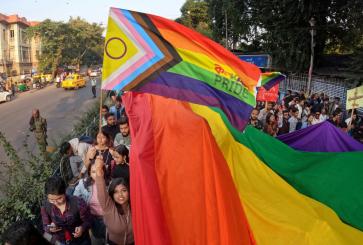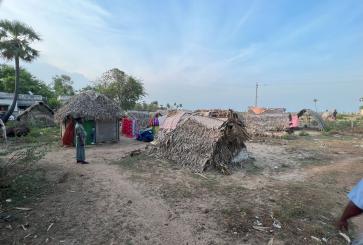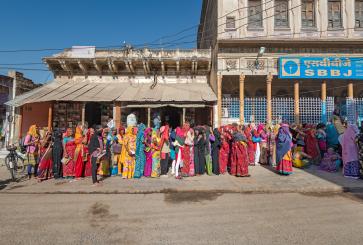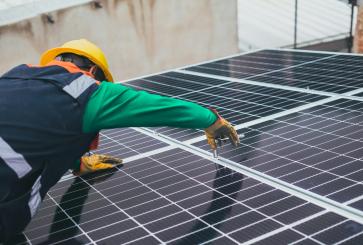
Climate, Economics & Finance
Collaborating with businesses to deploy low-carbon technologies and practices, simulating potential carbon markets, and utilizing modeling technologies to inform policy-making and assess green technologies.
Stabilizing the global climate is the great challenge of the 21st century. Temperatures have exceeded global averages for 37 consecutive years.
India’s economy is closely tied to natural resources like agriculture, water and forests. Even a small rise in temperature can negatively affect the economy, environment and communities. Research shows that with a 2°C to 3.5°C rise in temperature, India’s farmers may lose 9 percent to 25 percent of their net revenues, which may decrease the country’s GDP by 1.8 percent to 3.4 percent.
WRI India engages with businesses, policymakers and civil society at the local and national levels to both mitigate climate change and help communities adapt to its impacts.
We create credible performance tracking systems at the national, policy and industrial levels to measure progress toward meeting domestic climate, energy and development goals. Our greenhouse gas accounting frameworks help businesses, cities and the country measure and manage greenhouse gas emissions . And together with local partners, we develop practical tools and solid analysis to integrate adaptation into development initiatives in Indian cities and rural communities.
Climate Facts
- More than 60% of India’s agriculture is rain-fed. A 2°C rise in the world’s average temperatures will make India’s summer monsoon highly unpredictable.
- If emissions continue unabated, India could lose 1.8% of its gross domestic product (GDP) annually by 2050.
- India’s 8,000 kilometers of coastline and nearly half the country’s 28 states are at risk from rising sea level.
Initiatives within the Climate, Economics and Finance Program
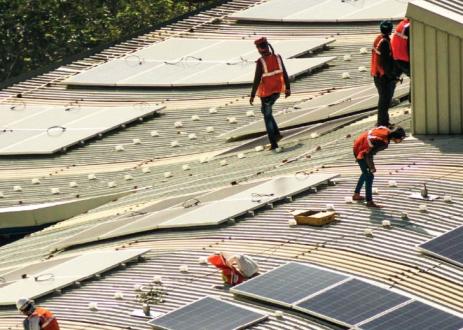
Aligning India's Climate Action with Long-Term Goals
Outlining strategic transitions to implement India’s Long-Term Low-Carbon Development Strategy (LTS)
Part of Climate, Economics and Finance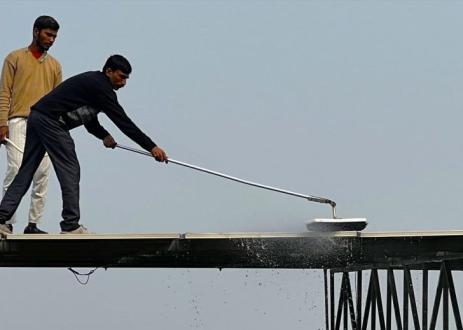
Facilitating People-Centered Transitions
A living repository of the activities being undertaken and outputs being developed under WRI India’s work on people-centered transition.
Part of Climate, Economics and Finance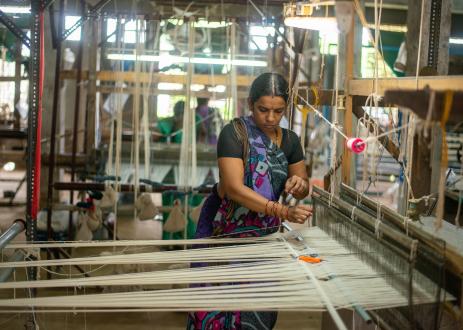
Resilient, Inclusive and Sustainable Enterprises (RISE)
Empowering Indian MSMEs and workers for a just transition to a low-carbon future.
Part of Climate, Economics and FinanceTowards a Climate-smart Covid-19 Recovery
This has been a year of unsurmountable loss for all of us – several have lost our health, our dear ones, our belongings, our livelihoods and our peace of mind, to a pandemic and a series of natural disasters.
Part of Climate, Economics and Finance
Scaling Up Good Adaptation Practices
Building Evidence for Better Adaptation Programming and Policy.
Part of Climate, Economics and Finance
Featured Blogs
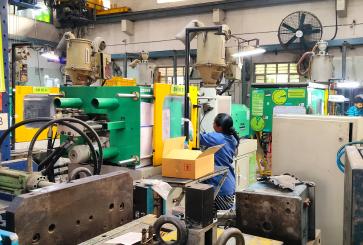
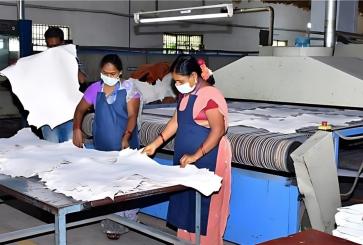

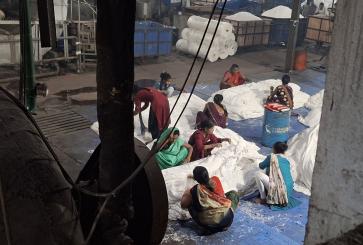
Behind the Seams: Reimagining Women’s Work in the Textile Sector’s Green Transition
Perspectives June 27, 2025